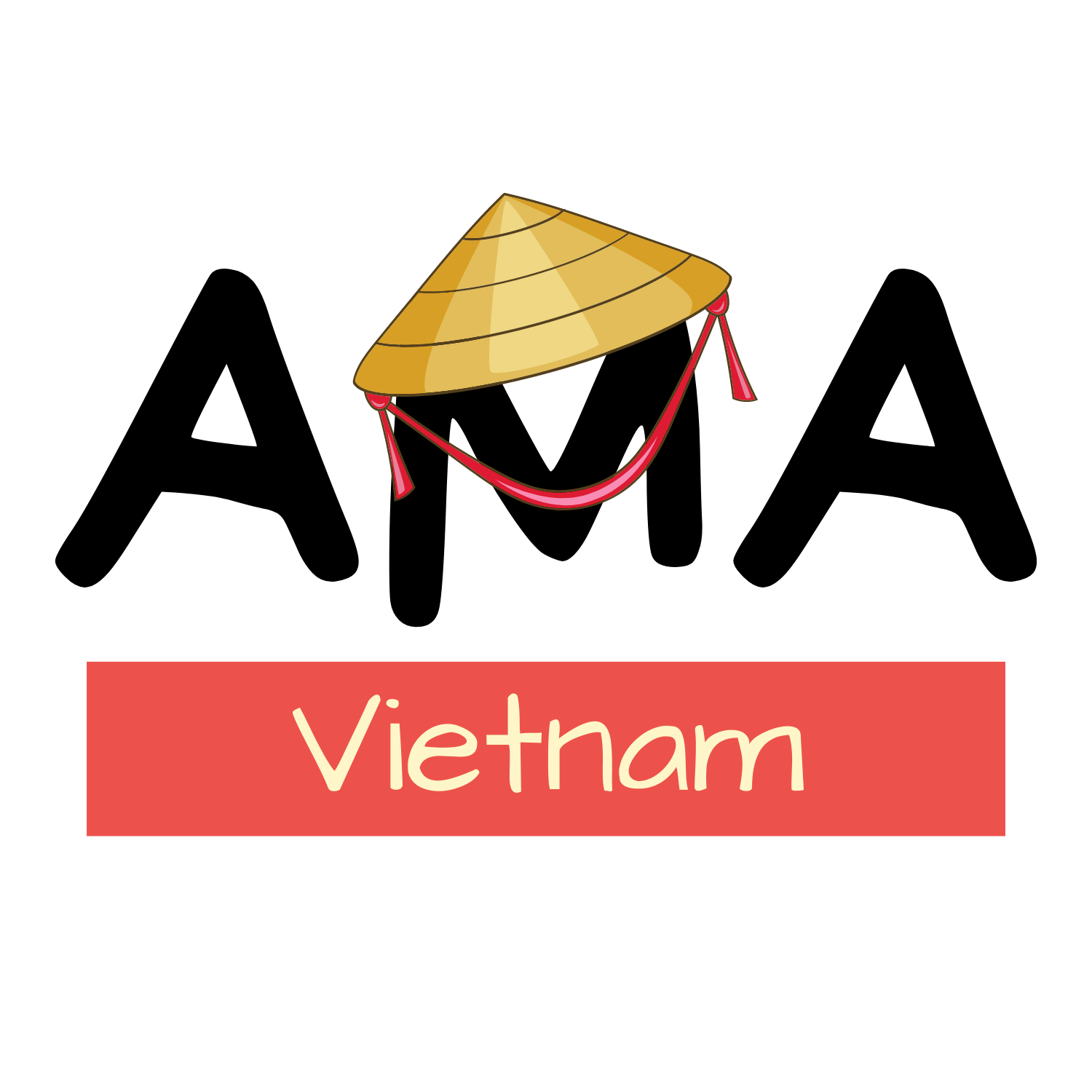Vietnamese New Year or Vietnamese Lunar New Year is called Tết or Tết Nguyên Đán or also Tết Âm Lịch in Vietnamese. It’s the most important event of the year in Vietnam.
If you are new to Tết, you can have a look at my previous article to better understand what is Tet and why it’s so important to Vietnamese people.
In this article, I will dive deeper into How Vietnamese celebrate the Lunar New Year. If you are curious to discover more about our rich culture and traditions, this article will suit you well!
Let’s go!
Reuniting with our families
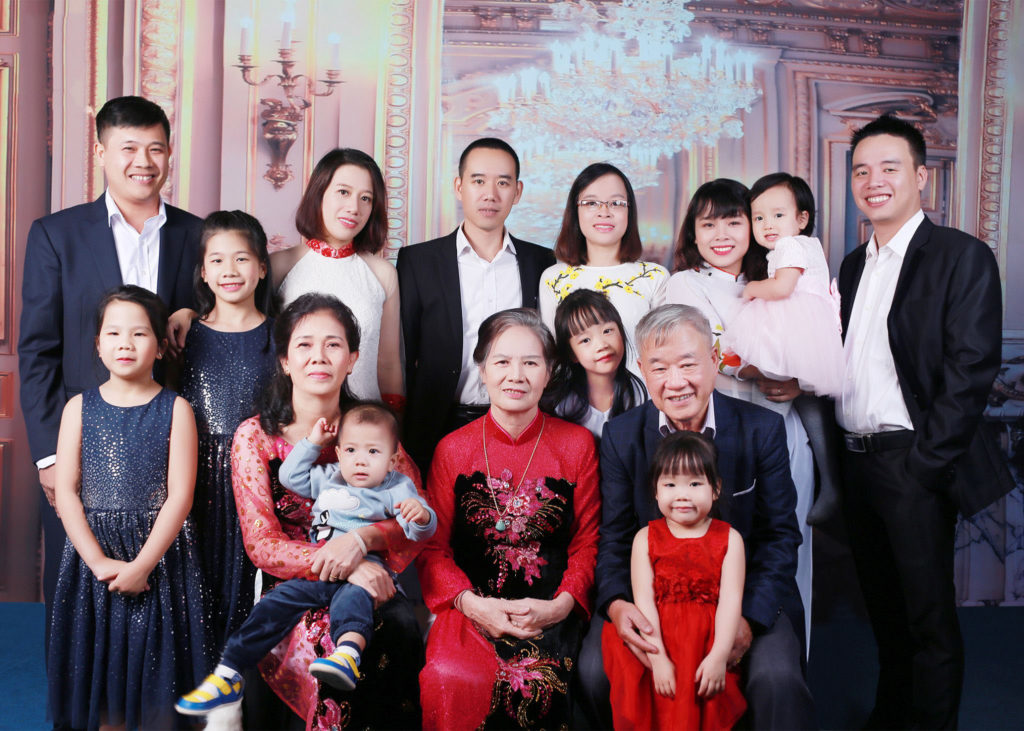
Tet is a privileged time for family, similarly to Christmas in Western countries for example.
As you might know, in Vietnam, plenty of people from rural areas move to big cities such as Ho Chi Minh, Ha Noi, Da Nang, Can Tho for working and studying. When Tet is about to arrive, everyone just cannot wait to come home to celebrate the Lunar New Year.
For some families, it’s difficult to reunite all of their members together. Mine is an example.
When I was living in Vietnam, all of my siblings and I lived in different cities, some were close and the others were far away from my parents. We didn’t have a lot of chances to see each other all at the same time. Now I’m in France, reuniting all members is even harder.
That’s why Tet is the perfect time to gather around all generations. During this wonderful time of the year, all of my family members meet together, catch up, play games, and share memories.
It can be stories about us when we were children, how silly we looked, and how naughty we behaved. We talk, we laugh, we feel grateful being a member of the family.
This makes me love Tet the most.
Cleaning and decorating the house
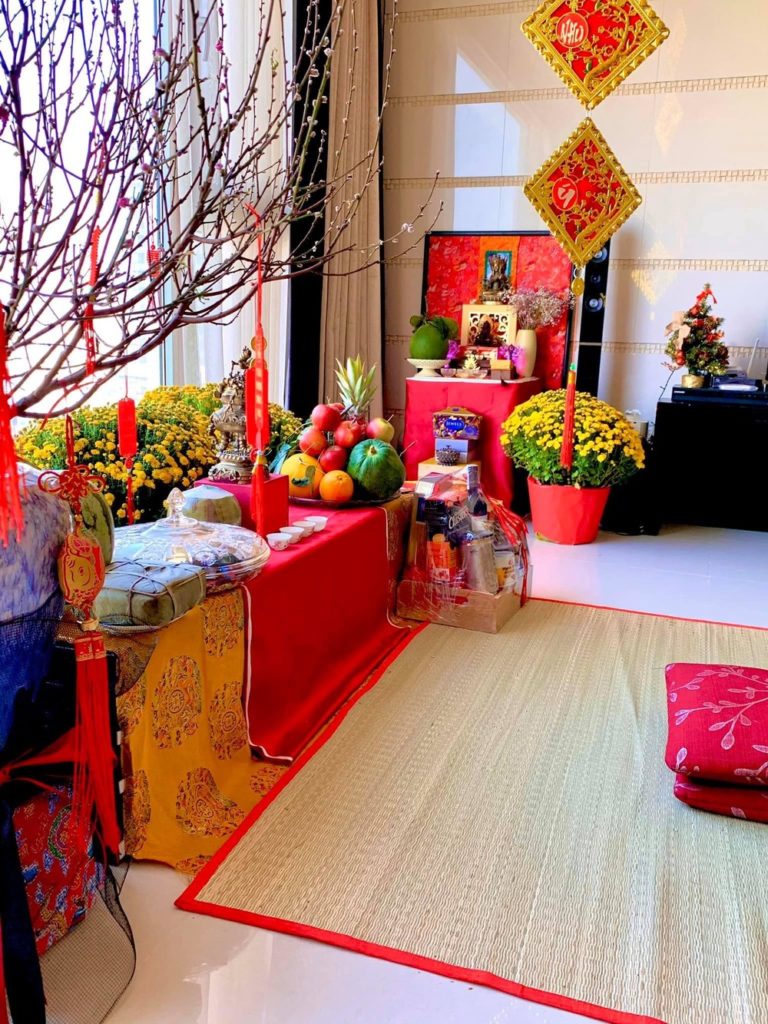
Cleaning the house is one of the common traditions before the Lunar New Year. As a clean and nice house would bring a pleasant atmosphere, it would therefore help bringing a positive and lucky year ahead.
Additionally, there will be many friends and relatives who will be visiting each other during this holiday. Keeping the house organized, neat, and covered with Tet colors such as red, yellow, and green is necessary to show our respect and hospitality to our guests.
That’s why we spend a lot of time to decor and make the house as clean, tidy, and beautiful as possible to welcome Tet. This is mainly how Vietnamese celebrate the Lunar New Year.
Taking care of our ancestor's graves
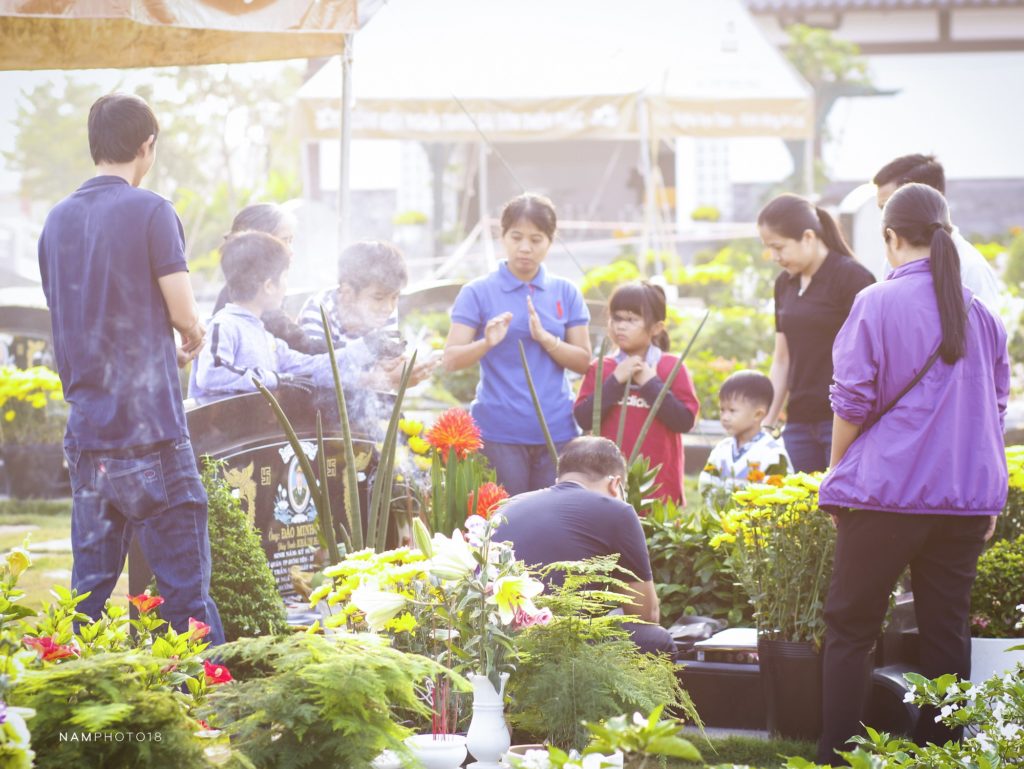
Vietnamese people not only prepare their houses to celebrate the Lunar New Year but also care about cleaning and repairing the resting places of the deceased. We call this activity “Tảo mộ” in Vietnamese.
From about December 20 to 30th of the lunar calendar (around January of the solar calendar), families will gather all generations and come to the cemetery. They clean the graves of their ancestor, repair them if there’s something wrong, clear the grass around.
After cleaning the tombs, they bring incense, flowers, fruits, and offerings to invite the deceased to come home, to celebrate Tet with their family.
During this visiting and cleaning, seniors will tell stories about their ancestors, such as who they were, what was their life like, and some other memories that still remain in the storytellers’ minds.
This is also one of the very popular activities that Vietnamese do to celebrate the Lunar New Year. It helps to remind young generations about their ancestors, introduce new family members to the deceased, as well as pray to have a new year full of health, luck and happiness.
Going to the local Tet market (chợ Tết)
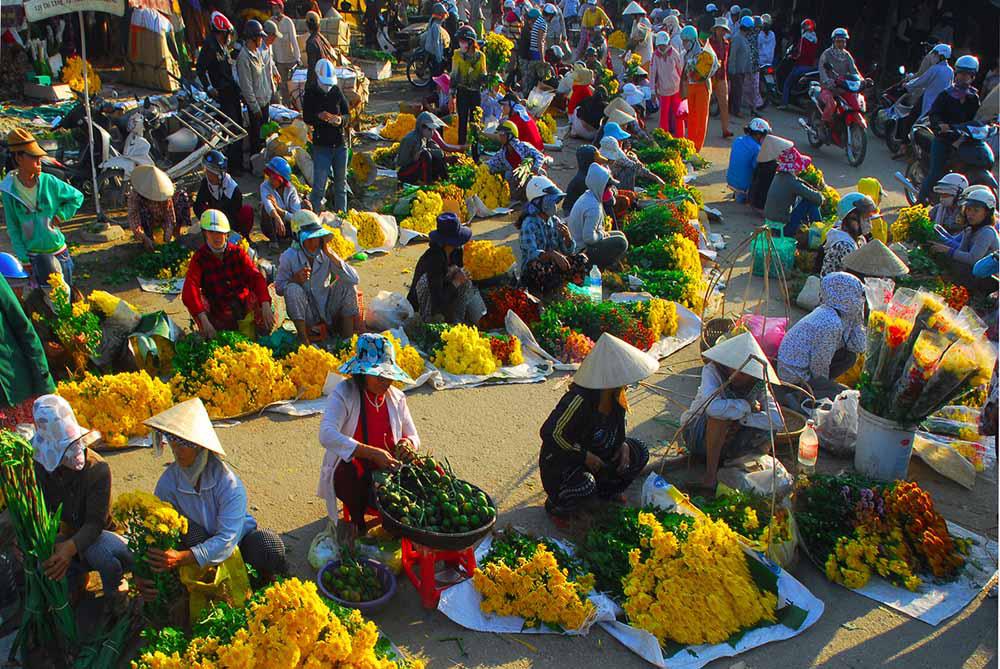
Apart from supermarkets, Vietnamese people often go to local markets to buy things for the new year. I would say these local markets are signatures of Tet.
They are always more crowded than usual. Locals go to there very early around 6 am to buy fresh products. Flowers are sold everywhere and make the local markets become colorful and lovely.
The sound of selling, bargaining, the voice of chatting, laughing creates a very unique and characteristic song of the local Tet market in Vietnam.
This is one of the greatest things in the Vietnamese Lunar New Year. It’s boldly local and vividly reflects the real spirit of Tet. If you would like to feel what Tet is, just simply go to the local Tet market, buy some products and enjoy the vibe.
Cooking Bánh Chưng (Chung cake), Bánh Tét (Tet cake)
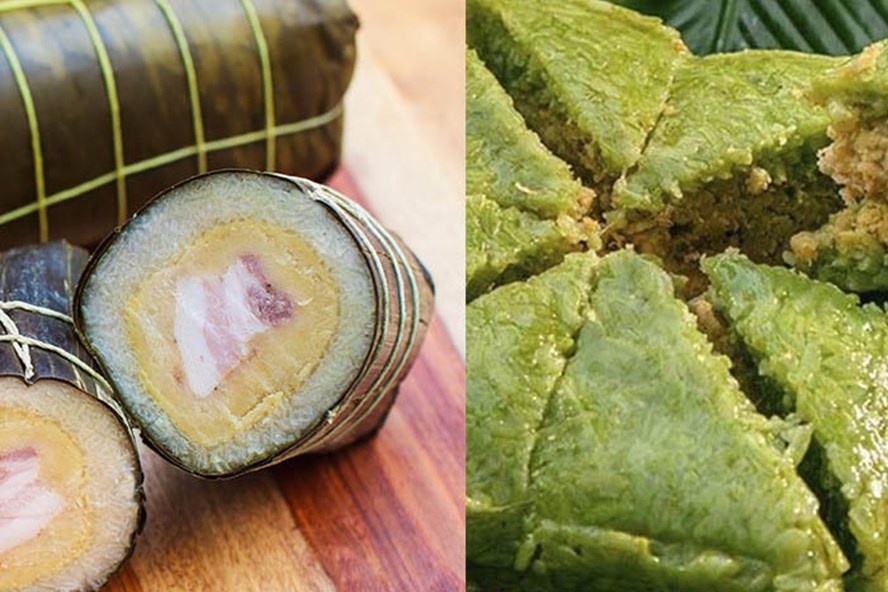
One of the indispensable activities before Tet is cooking Bánh Chưng and Bánh Tét, which can be literally translated as Chung cake and Tet cake. But I prefer to keep their original names in this article.
Depending on each area and region in Vietnam, we will cook either Bánh Chưng or Bánh Tét or both. Normally, people in the North are more with Bánh Chưng while the Central and the South prefer Bánh Tét.
Bánh Chưng and Bánh Tét are similar as both are made of sticky rice, meat, and beans. They are both wrapped in leaves, and cooked for hours.
However, Bánh Chưng is square-shaped and we often use dong leaves to cover it. While Bánh Tét is cylindrical and is wrapped in banana leaves.
They are traditional food and the symbol of Tet. Whenever we see them, we feel Tet coming around. Preparing and cooking Bánh Chưng and Bánh Tét are how Vietnamese celebrate the Lunar New Year with their family.
The cakes themselves are delicious. Personally, I like it very much. The stickyness of the rice, the rich taste of the meat and beans inside, served with pickled small leeks, this combination is just amazing.
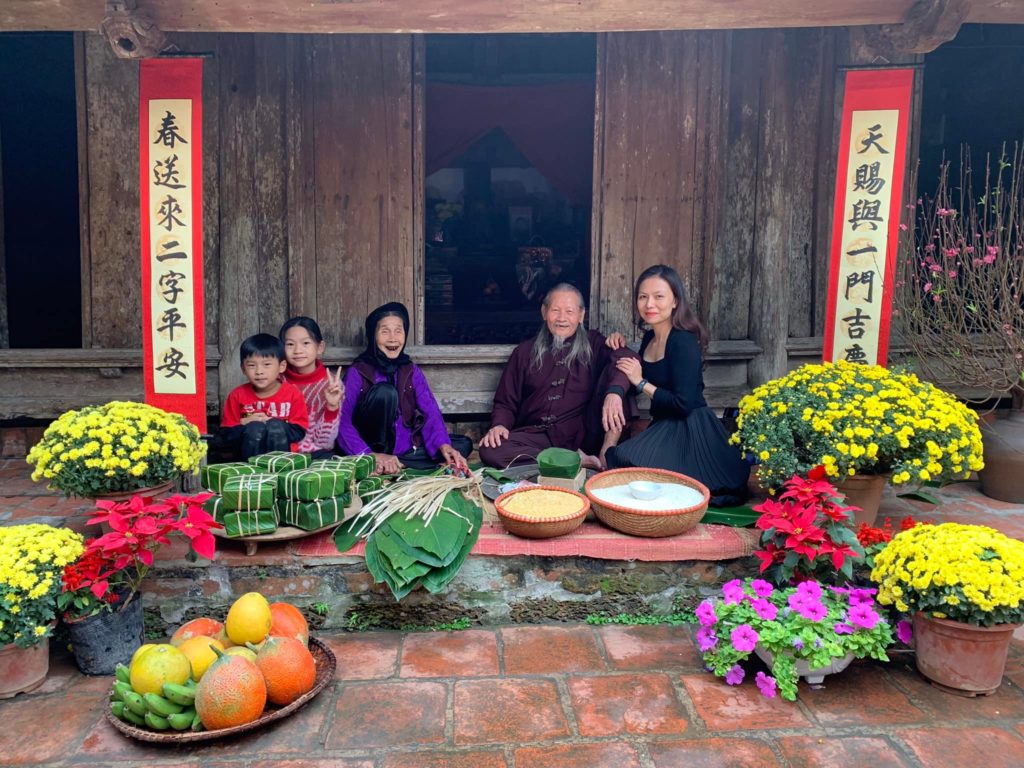
More importantly, the whole atmosphere and generations connections they bring to us are just more than a simple dish.
In the last days of the year, the whole family gathers around the boiling pot of Bánh Chưng and Bánh Tét, waiting for the cakes to be cooked, which is the warmest moment when Tet comes.
I love the image of grandmas and mothers showing their children how to wrap and make a Bánh Chưng and Bánh Tét for Tet. Thanks to this activity, I learn how to make these cakes from my mom. This is the beauty of the Lunar New Year where generation connection has a chance to be reinforced.
Worshiping Land Genie, and Gods of Kitchen
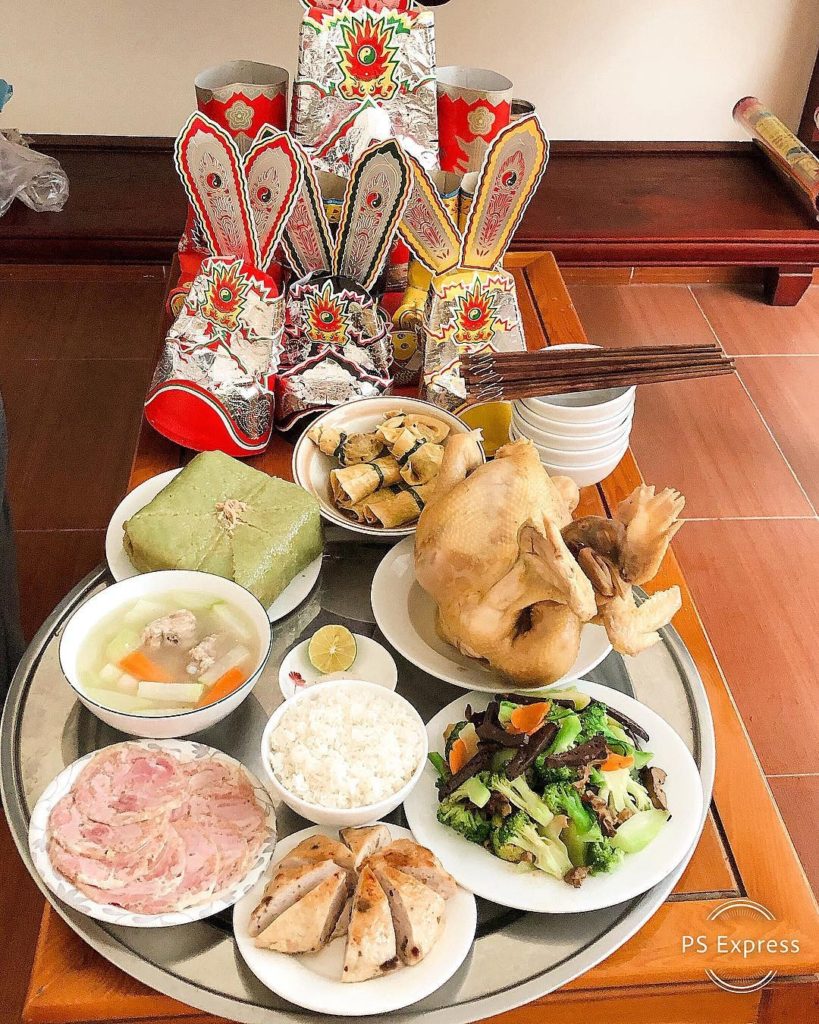
According to folk beliefs, Tao Quan are the Gods including Land Genie (ông Công) who takes care of the land and the house, Mr. Kitchen God (ông Táo) who oversees the kitchen, and Mrs. Kitchen God (bà Táo), who takes care of the market and trading.
Their role is to witness and take notes on all events happening in each family. On December 23 every lunar year, Kitchen Gods and Land Genie will ride a carp to heaven. They will then present to the Jade Emperor all the things he has seen and heard during the year.
From there, the zenith will give rewards and punishments for each family based on what they have done, good or bad. This belief somehow reminds us to live a better life, to share and help others as there will be karma for what we did.
That’s why on the same day, Vietnamese families often hold a decent ceremony with offerings to send Tao Quan to heaven solemnly with the hope that they will bless the family with much luck.
Celebrating New Year's Eve with family
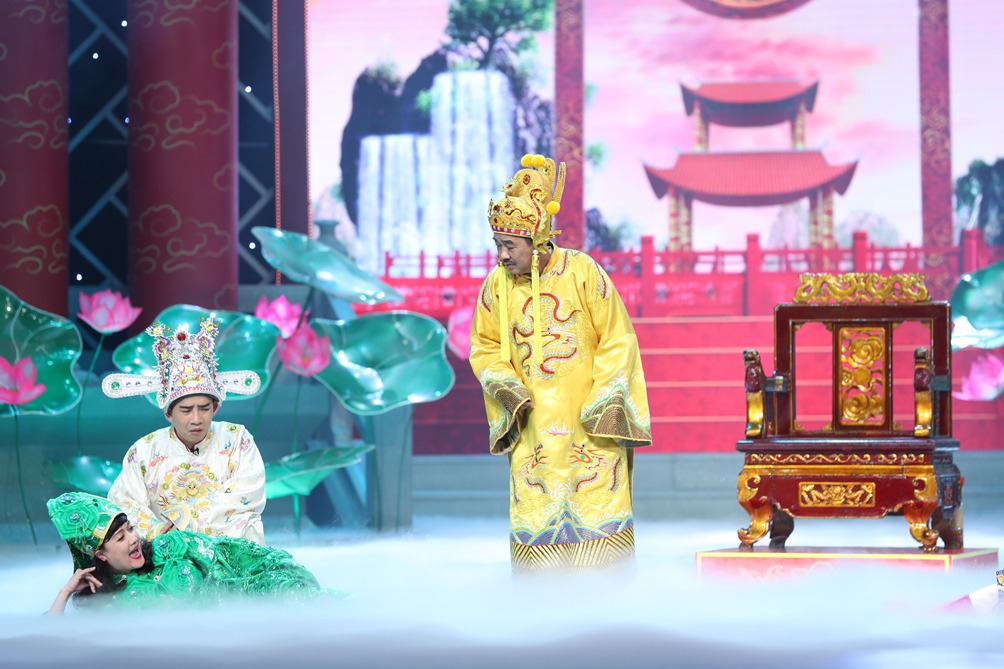
We call the New Year’s Eve as Đêm Giao Thừa in Vietnamese.
This is a peaceful, warm, full of love moment when the family members get together to witness a farewell to the old year and welcome a new year of luck and happiness.
Many families choose to stay at home, watch “Táo Quân” which is a famous show where different Gods report to the jade emperor about important events in the past year.
It seems like a wrap-up of 2021 as well as share points of view and touches of sarcasm with audiences. I find it similar to South Park. Therefore it brings lots of humor and lessons learnt. My family loves this show. We watch it every year and laugh so hard together.
Other Vietnamese also conduct offerings during the New Year’s Eve to express gratitude to their ancestors and wish for a peaceful new year for their family.
Besides, in big cities, people gather at fireworks spots on New Year’s Eve to count down and welcome the first moments of the new year. While in rural areas, it is common that people to choose to stay at home with their families and give each other good wishes.
Going to pagodas on the very first day of the year
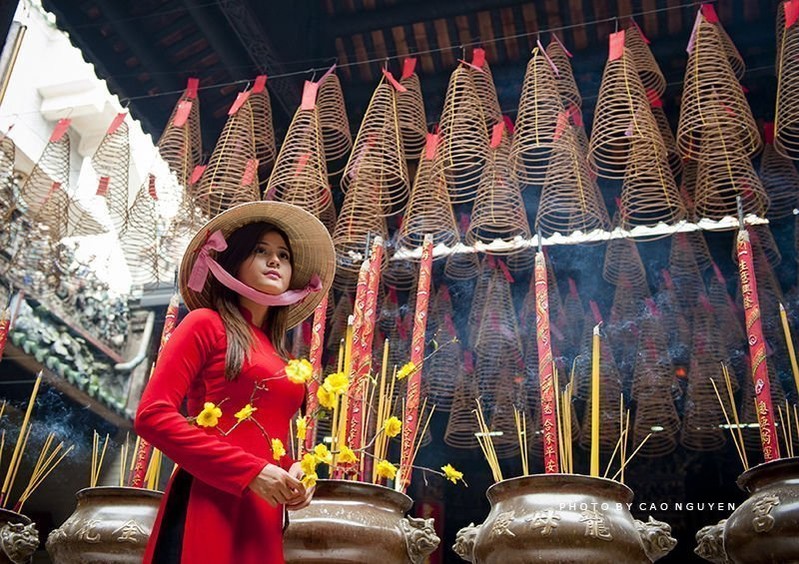
We call the first day of the lunar year is Mồng Một.
This is a very important day as Vietnamese people assume that what happens during Mồng Một could be a signal for the whole year that’s about to come. That’s why we try to make the this day as perfect as we can.
On Mồng Một, many Vietnamese people choose to go to pagodas to pray for luck, wealth, and happiness. It is also the time for us to return to the spiritual places and leave behind hardships in their livelihood.
Some also don’t forget to ask for meaningful couplets or young shoots sometimes from the temples to bring home. We usually call it the New Year’s fortune (Lộc Đầu Năm in Vietnamese).
NOTES FOR YOU:
- On the very first day of the Vietnamese lunar new year: you should avoid going to other people’s house, except your close family.
- As people believe that what happens on the first day of the year could be a hint for the whole new year, if you are the first one who comes to their house, you could represent their luck.
- But at the same time, they could blame you if they have a bad year.
Giving and receiving lucky money
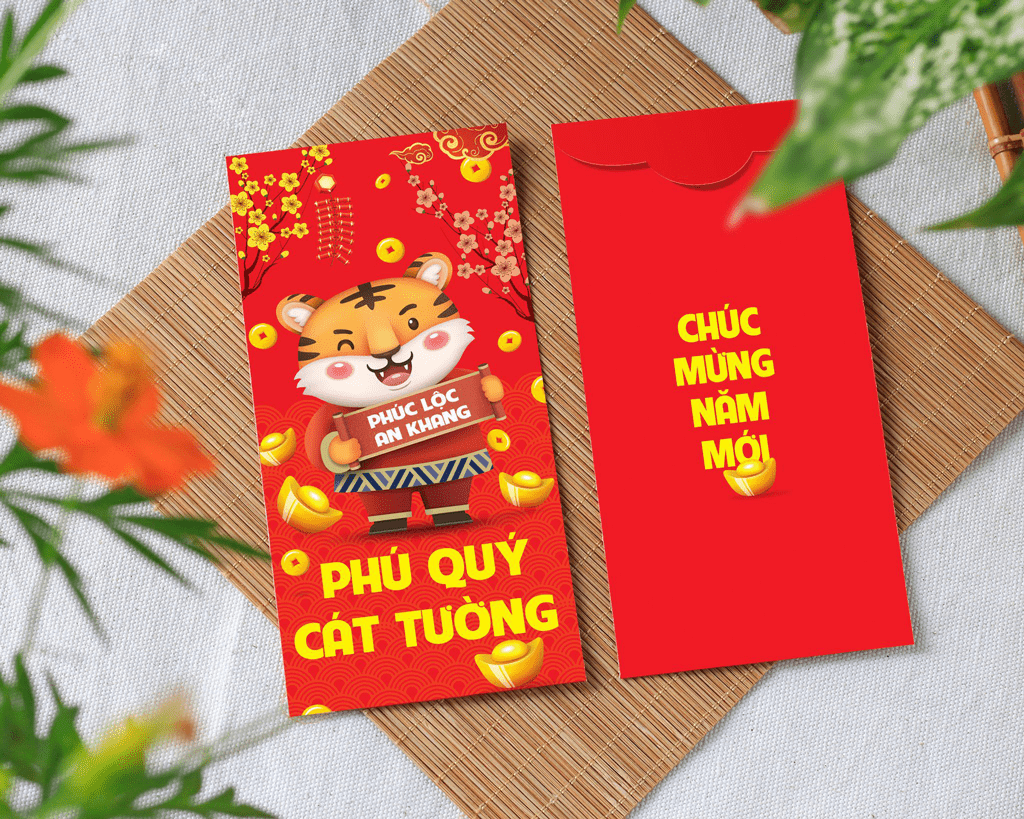
If you give gifts to each other at Christmas, giving and receiving lucky money (tiền lì xì in Vietnamese) are how Vietnamese celebrate the Lunar New Year.
Lucky money is money normally in cash and it should be new banknotes, freshly withdrawn. When Tet is about to come, we try to find and prepare it. We then put these money into a beautiful envelope which is often in red color to reflect luck.
The amount of lucky money is very various, it could be very little but sometimes it’s a lot. You can find it from a few thousand VNDs to millions depending on the receivers as well as the wallets of givers.
Normally, adults will give lucky money to children and young people who are still not working independently to take care of their own life. When I was a child and a teenager, I got from VND 10 000 to VND 500 000 (which is equivalent to 0,40 to 19€)
Nowadays, some parents keep giving lucky money to their children no matter how old they are. I still receive lucky money from my parents and siblings for instance.
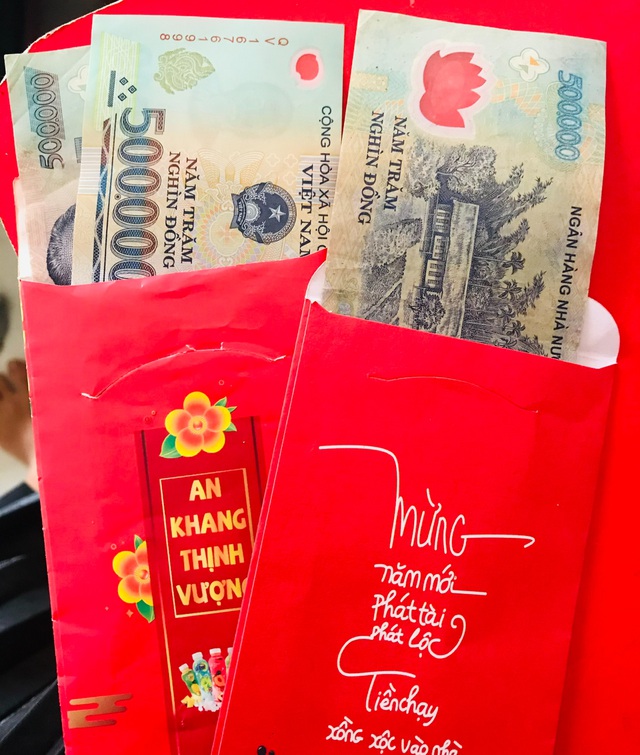
There are also many people giving lucky money back to their parents as a way to show their gratitude. In my family, we all give and receive lucky money from each other.
I remember that when I was living in Vietnam, I usually woke up late on the first day of the new year. And you know who often made me move from my bed? They were all my nephews and nieces. They woke me up, waited in line and got ready to receive lucky money from me.
Sometimes I found my parents and siblings in the line, too 🙂
Personally, I really love this activity. It’s a really great moment to see how happy they are when they get my lucky money, and vice versa. The feeling of opening a lucky envelope and discovering how much I could have, it’s just amazing.
Visiting relatives, friends, and teachers
Tet is mainly for family, but we also share it with others.
We usually spend the first and the second day of the Lunar New Year with family and neighbors, the third day for friends, and the fourth day for teachers.
Each visit during Tet is very personal and interesting. It can be a catch-up to friends after a long time not seeing each other. It can be sharing about the good and bad things of the past year. It can be a discussion of plans and ambitions for a new year ahead.
Those are moments of bonding and love.
Giving best wishes to each other
Besides visiting, giving best wishes to each other is how Vietnamese celebrate the Lunar New Year. If you want to make some effort to say your wishes in Vietnamese, below are some recommendations:
- Chúc bạn một năm mới vạn sự như ý
- Wishing you a new year that everything happens as you wish
- Chúc bạn một năm mới an khang và thịnh vượng.
- Wishing you a happy and prosperous new year
- Chúc bạn một năm mới bình an và hạnh phúc
- Wishing you a peaceful and happy new year
- Chúc bạn một năm mới dồi dào sức khoẻ, phát tài phát lộc.
- Wishing you a new year full of health, wealth and prosperity.
- Chúc bạn một năm mới may mắn và thành công
- Wishing you a lucky and successful new year
- Chúc bạn một năm mới: Tiền vô như nước sông Đà, tiền ra nhỏ giọt như cafe fin
- Wishing you a new year that money comes in like water in the Da river, money comes out like coffee fin
Depending on who you gonna say it to, you should replace “bạn” (you) by anh, chị, bố, mẹ, ông, bà, dì, chú, etc. (translated in order as a brother, sister, father, mother, aunt, uncle, etc).
If you find these wishes in Vietnamese are too complicated, you can simply say “Chúc mừng năm mới” (Happy new year). It works well, too.
Over to you
So now you know How Vietnamese celebrate the Lunar New Year. I’m curious that what tradition and custom do you like the most?
As a Vietnamese, I love gathering with all family members, going to the local Tet market, giving and receiving lucky money. These are something that I can do only once year and the whole experience is just very special to me.
If you want to discover deeper layers of our rich cultures and traditions, visiting Vietnam during the Lunar New Year is a good idea. Even though you could not find all services are available as usual, but still, it gonna bring you lots of surprise and fun.
In case you have any questions, don’t hesitate to ask me. My next-week article will be about the traditional food for Tet. So, stay tuned!
If you would like to stay updated with the latest content, ensure to subscribe to the AMA Vietnam blog today:)
